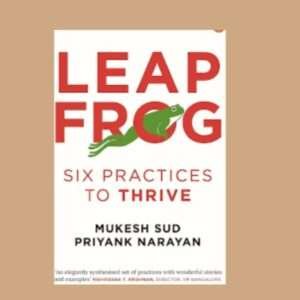sa·pi·ens: of, relating to, or being recent humans. (Homo sapiens) as distinguished from various fossil hominids.
About Sapiens: A Brief History of Humankind
Sapiens: A Brief History of Humankind by Yuval Noah Harari is a thought-provoking exploration of the history of our species. In this book review, we delve into the captivating narrative that Harari weaves, analyzing its key themes, insights, and the impact it has had on readers worldwide.
Unveiling the Tapestry of History
Sapiens: A Brief History of Humankind: embarks on an ambitious endeavor to condense the vast expanse of human history into a single, comprehensive volume. From the emergence of Homo sapiens in prehistoric times to present-day technological advancements, Harari skillfully guides readers through significant milestones and turning points in our collective journey.
Interdisciplinary Perspectives
Drawing from various disciplines including history, biology, anthropology, and economics, Harari presents a multidimensional analysis of human history. He skillfully synthesizes complex concepts, enabling readers to grasp the interconnections between seemingly disparate aspects of our past.
Cognitive Revolution and the Rise of Homo Sapiens
One of the central themes of “Sapiens: A Brief History of Humankind” is the Cognitive Revolution, which explores how Homo sapiens acquired the cognitive abilities to develop language, culture, and complex social structures. Harari investigates the impact of these developments on our ability to organize, cooperate, and dominate the natural world.
The Agricultural Revolution and Societal Transformations
Sapiens: A Brief History of Humankind, delves into the profound consequences of the Agricultural Revolution, which transformed human societies from nomadic hunter-gatherer communities to settled agricultural civilizations. He explores the far-reaching effects of this transition, including the rise of hierarchy, the birth of economic systems, and the growth of human populations.
The Evolution of Social Constructs
Harari skillfully examines the formation and evolution of societal constructs such as religion, money, and political systems. He unpacks their role in shaping human behavior, collective beliefs, and the establishment of social order. Through insightful analysis, he challenges readers to question long-held assumptions and view these constructs through a critical lens.
Challenges of the Modern Era
In the later sections of The Sapiens: A Brief History of Humankind, Harari tackles the complexities of the modern era, exploring topics such as the Scientific Revolution, the impact of imperialism, and the rise of capitalism. He addresses the consequences of our technological advancements and raises thought-provoking questions about the future of humankind in an increasingly interconnected and complex world.
Profound Reflections and Ethical Considerations
Beyond providing a historical account, “Sapiens” prompts readers to reflect on the ethical implications of our past and present actions. Harari encourages us to question the impact of our choices on the environment, other species, and even our own species’ future. He challenges conventional wisdom and invites readers to envision alternative paths for humanity.
10 important points to remember from Sapiens: A Brief History of Humankind
- Cognitive Revolution: Harari explores the Cognitive Revolution, highlighting how the emergence of Homo sapiens and our cognitive abilities transformed human history.
- Agricultural Revolution: The book delves into the impact of the Agricultural Revolution, which shifted societies from hunter-gatherer lifestyles to settled agricultural civilizations, leading to significant societal transformations.
- Social Constructs: Harari examines the formation and evolution of social constructs such as religion, money, and political systems, shedding light on their role in shaping human behavior and societal structures.
- Historical Interconnections: The author skillfully connects diverse aspects of history, illustrating the interdependencies between biology, culture, economics, and other disciplines.
- Impact of Imperialism: Harari analyzes the consequences of imperialism, exploring how European powers shaped the modern world through colonization and the expansion of empires.
- Scientific Revolution: The book discusses the Scientific Revolution and its influence on human understanding, challenging traditional beliefs and paving the way for progress and technological advancements.
- Rise of Capitalism: Harari explores the rise of capitalism and its impact on global economies, societal structures, and the distribution of wealth and power.
- Ethical Considerations: The author raises important ethical questions throughout the book, prompting readers to reflect on the consequences of human actions and their implications for the environment and other species.
- Technological Advancements: Harari examines the role of technology in shaping human history, from early innovations to the modern-day technological revolution, and raises thought-provoking questions about the future impact of technology.
- The Human Story: “Sapiens” offers a comprehensive and insightful overview of the human story, encouraging readers to view history from a broader perspective and appreciate the interconnectedness of human experiences across time and space.
Conclusion
“Sapiens: A Brief History of Humankind” is an extraordinary work that illuminates the tapestry of human history with clarity and depth. Yuval Noah Harari’s interdisciplinary approach, captivating storytelling, and thought-provoking insights have resonated with readers worldwide. Sapiens: A Brief History of Humankind, serves as a reminder of our shared origins, the intricate threads that connect us, and the profound implications of our past as we navigate the complexities of the present and shape the course of our future. “Sapiens” is an invaluable addition to any reader’s collection, sparking both intellectual curiosity and critical reflection long after its final pages.
Follow Reviewzade on Instagram for regular updates. Check here for more book reviews.




